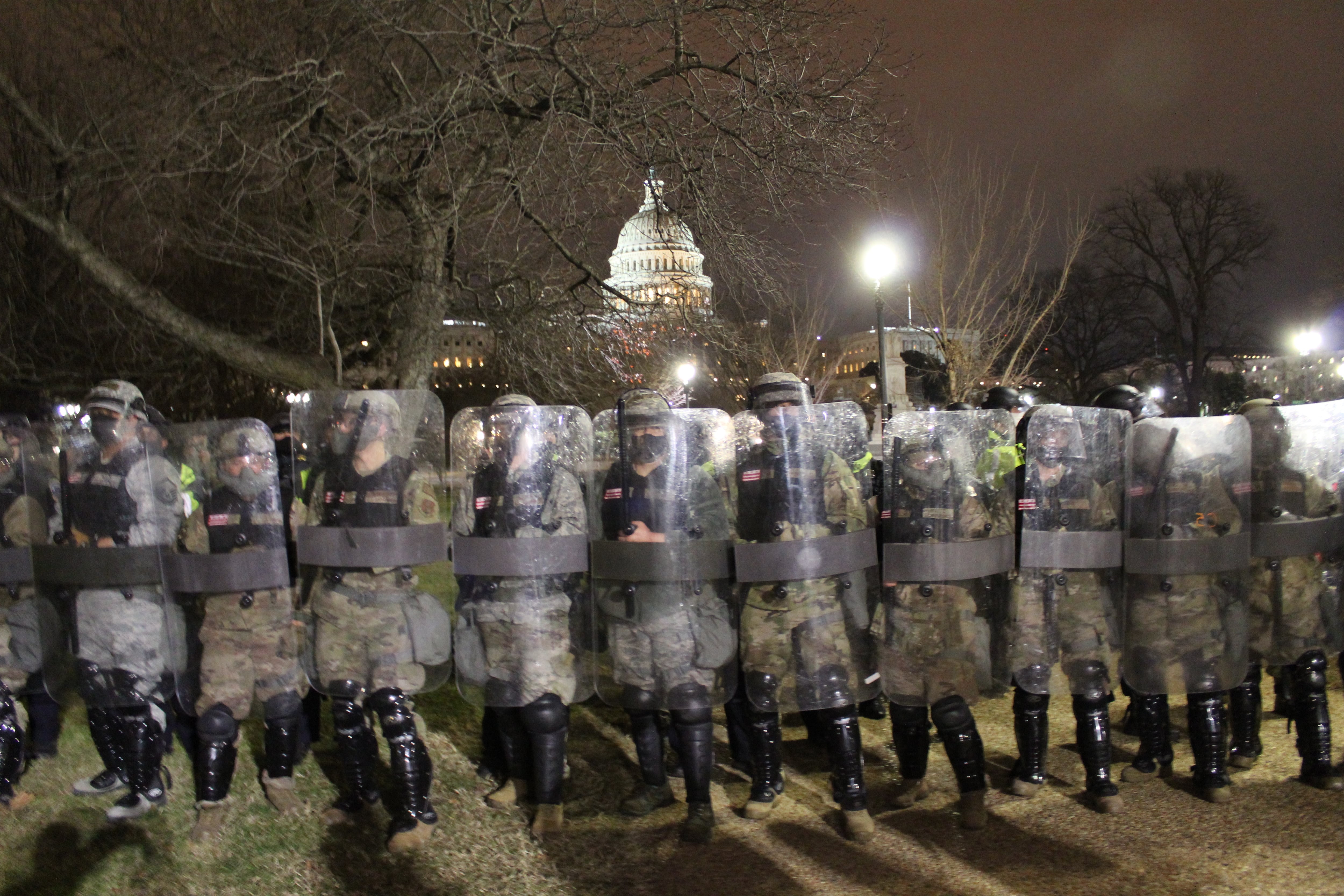Another D.C. National Guard official is alleging that top Army officers tried to stall mobilization of Guard troops in response to the Capitol insurrection on Jan. 6.
Writing on behalf of the then-D.C. Guard adjutant general, former staff judge advocate Army Col. Earl Matthews sent a 36-page memo, first reported by Politico, to the House Oversight and Reform Committee on Wednesday, questioning the Pentagon’s official timeline of that day and specifically calling out a recently released Defense Department inspector general report that found officials took appropriate action in response to the riot at the Capitol.
Maj. Gen. William Walker, now retired and serving as the House sergeant at arms, told lawmakers in March that he was frustrated with the Army’s decision-making process on Jan. 6, offering testimony that contradicted the official timeline released by the Army on Jan. 7.
“Given the glaring deficiencies with respect to the DoD IG investigation, and given that his name was unfairly besmirched, MG Walker requests an independent review of the investigative findings of the DoDIG report and most importantly, the Army Report that was created at LTG Piatt’s direction should be publicly released, independently reviewed and substantiated,” Matthews wrote.
DoD’s official explanation of events is incorrect, Matthews alleges. As an example, he offers a 2:30 p.m. phone call attended by D.C and Capitol law enforcement officials.
Matthews alleges that Guard officials were told that then-Army Secretary Ryan McCarthy, who was in charge of the decision to mobilize troops, was not available to jump on the call because he was meeting with the acting defense secretary.
“The DoDIG report incorrectly indicates that McCarthy was an active participant on the call and that he spoke for roughly 5 minutes, before departing,” Matthews wrote. “During these 5 minutes, McCarthy was able, according to the DoDIG report, to ‘hear and acknowledge the urgent request from [the Capitol police chief] and [D.C. Mayor Muriel Bowser].’ In reality, McCarthy could not have heard from Bowser during the 2:30 p.m. call because she did not participate in the call.”
Matthews also zeroes in on two high-ranking members of the Army staff: Gen. Charles Flynn, then the deputy chief of staff for operations, and Lt. Gen. Walter Piatt, director of the Army staff.
He claims that the generals advised against activating troops to secure the Capitol, delaying the decision that ultimately sent thousands to back up local law enforcement, arriving around 6 p.m., roughly four hours after D.C. and Capitol officials first requested their assistance.
RELATED

Army leaders, and former acting Defense Secretary Chris Miller, have testified before Congress that they did not hesitate to deploy troops, but that they held a series of phone calls and meetings up and down the chain of command before approving a plan for the troops to secure the outside of the Capitol complex while law enforcement worked to clear it.
Matthews alleges more than once that officials invented parts of their timeline while testifying before Congress. He goes on to write that Piatt claimed that Walker told McCarthy that his quick reaction force could be ready to head to the Capitol within 20 minutes, and that McCarthy said he would get Miller’s sign-off before giving the go-ahead.
“That sentence is drawn from whole cloth and did not occur,” Matthews wrote.
He also turns his ire toward the DoD IG, and its acceptance of the official Pentagon narrative.
“The DoDIG report is replete with factual inaccuracies, discrepancies and faulty analysis,” he wrote. “It relies on demonstrably false testimony or statements.”
Officially, the Pentagon is sticking with its story. Spokesman John Kirby told Military Times on Monday that DoD is not considering further review or investigation.
Meghann Myers is the Pentagon bureau chief at Military Times. She covers operations, policy, personnel, leadership and other issues affecting service members.





